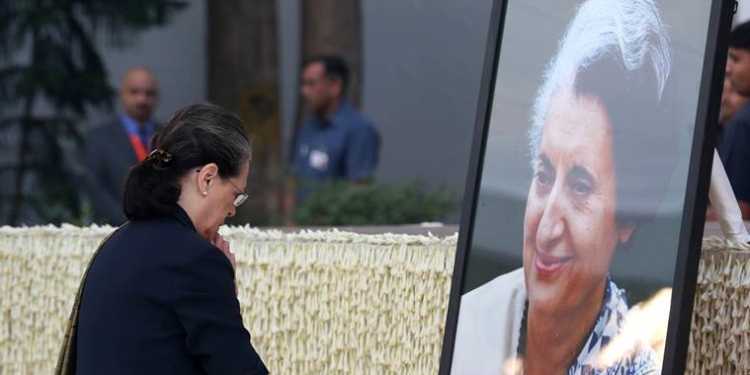Since the new BJP government came into power, a new phrase has been used over and over again –“the new government has imposed an undeclared emergency”. For the majority of Indians who are under 30, there is no frame of reference to judge the credibility of this assertion or rather argument because the present generation have a vague understanding of what an actual emergency looks like.
This is precisely why such ridiculous arguments can be made by people with agendas and get away with it. Thus, in this article the writer will try to portray a picture of the emergency that most people seem to have forgotten and it will be focused on the judiciary as in an unprecedented move, seven opposition parties have given a notice for the impeachment of the CJI Deepak Mishra.
Congress has had a complicated relationship with judiciary. It’s much like the elite political overlords rewarding their land owners with titles and accolades. The relationship of Congress party and the judiciary is one of petty patronage and devoid of any regard for neutrality of judiciary, as they have been claiming in the recent days. The recent initiative by the Congress party to pressure the judiciary into submission is very similar to the Congress approach towards judiciary right before and during the emergency.
The new Congress was then known as Congress (I) with Indira Gandhi in the leadership position went to war with judiciary in what would later be termed as one of the darkest days of Indian judiciary. When emergency was imposed, the Congress called for a “committed judiciary”. It was as outrageous as then as it is right now. The very concept that judiciary must be committed to the Party leadership insinuates the underlying overlord mindset that was and still prevails in the Congress party.
The idea that legislature is bringing a notice which directly interferes with the working of judiciary is a rare if not completely unprecedented one. It would be wise to look back and search for precedence through the observations made by the authority on safeguarding and interpreting constitution, the Supreme Court of India.
During the emergency, Congress party enacted the 39th amendment to the constitution which put President, Vice President, Prime Minister and Speaker of Lok Sabha beyond the legal ambit of Indian courts. This amendment, introduced during the emergency, not only was an example of legislative overreach but also an attempt by Indira Gandhi to bypass courts which have been unfavourable to her regime.
Fortunately, the amendment was struck down by the Supreme Court in 1980 in the Minerva Mills vs Union of India case. To prevent further legislative infringement and to safeguard the core values of the constitution, Supreme Court reinforced the idea of ‘Basic structure doctrine’ according to which the legislature cannot amend the constitution to such an extent as to render it unrecognisable.
The 39th amendment is demonstrative of the fact that Congress party holds the judiciary with little regard and has tried its best to undermine the judiciary time and again.
Given the shady past of Congress when it comes to safeguarding the constitutional values and upholding the independence of judiciary, it is indeed farcical that they are arguing about ‘saving the constitution’. The entirely unwarranted impeachment fiasco further emphasizes the point that Congress party holds democratic institutions with little regard and is not averse to undermining these institutions for political gains. The split among the Congress party leaders regarding the impeachment issue shows that even most of the senior Congress leaders find this charade of Congress reprehensible. That should have been the first clue for Congress party leadership as to how unwise this impeachment decision was.




























